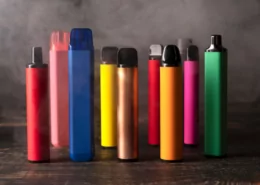Understanding the Risks of Vaping During Pregnancy
The journey of motherhood is fraught with numerous critical decisions, including choosing a balanced diet, ensuring regular physical activity, and adopting healthy lifestyles. Amidst these decisions, the question of vaping during pregnancy often arises, given the escalating popularity of e-cigarettes as a perceived healthier alternative to traditional tobacco smoking. This comprehensive article aims to shed light on the potential hazards and implications of vaping when expecting.
Understanding Vaping and Pregnancy
Demystifying Vaping
Before delving into the topic at hand, it’s important to clearly define vaping. E-cigarettes operate by heating a liquid that usually includes nicotine, flavorings, and other chemicals, creating a vapour for the user to inhale. Despite the differing delivery method, the risk factors associated with nicotine exposure cannot be disregarded, particularly for pregnant women.
The Case Against Vaping During Pregnancy
Although e-cigarettes have been positioned as a healthier substitute to traditional smoking, the reality is that vaping is not devoid of risks, especially during pregnancy. Here are some critical concerns.
- The Nicotine Factor: Nicotine, the highly addictive substance found in both e-cigarettes and conventional cigarettes, is one of the key risks of vaping during pregnancy. Exposure to nicotine during pregnancy can lead to numerous adverse effects, such as hindering fetal brain and lung development, increasing the risk of premature delivery, and contributing to low birth weight.
- Unwanted Chemical Exposure: The liquids used in vaping, known as e-liquids, aren’t just composed of water and nicotine. They contain a plethora of other chemicals that provide flavor and generate vapour. Some of these substances, such as propylene glycol, vegetable glycerin, and flavoring compounds, could potentially harm a developing fetus.
- Uncertainty Over Long-term Effects: Since vaping is a recent trend, long-term studies about its effects are sparse. This lack of concrete data leaves a lot of ambiguity about the potential long-term implications for both the mother and child.
The Financial Upside to Quitting
In addition to health benefits, there’s a monetary reason for pregnant women to quit smoking. Through the government ‘Swap to Stop‘ scheme, expectant mothers are incentivized with shopping vouchers worth up to £400. This initiative also includes behavioral support to assist the transition to a smoke-free life.
Can You Vape While Pregnant?
Despite the prevalent view of vaping as a “less harmful” alternative to smoking, it’s worth noting that vaping is not without its own set of potential harms. Given the paucity of robust research data, it’s generally advised that pregnant women refrain from vaping to avoid any exposure to nicotine and other potentially harmful substances present in the vapour.
Vaping Zero Nicotine While Pregnant
One might consider vaping zero-nicotine products as a safer alternative during pregnancy. However, e-liquids are complex mixtures that contain more than just nicotine. These compounds used for flavoring and creating the vapour cloud might not be fully safe either, as their effects on a developing fetus are not well studied. Thus, it’s recommended to avoid vaping completely during pregnancy to safeguard against any unknown risks.
Is Secondhand Vaping Bad for Babies?
The harmful impact of secondhand smoke is well-established, but the risks associated with secondhand vapour from e-cigarettes are less clear. Although the vapour exhaled by e-cigarette users contains fewer harmful chemicals than traditional tobacco smoke, it doesn’t necessarily mean it’s completely safe. Currently, there is ongoing research to understand the potential health risks of exposure to secondhand vapour, particularly for vulnerable groups like pregnant women, babies, and children.
“Smoking e-cigarettes, also known as vaping, doesn’t produce tobacco smoke so the risks of passive smoking with conventional cigarettes doesn’t apply to e-cigs,” states the NHS.
Alternatives for Expecting Mothers
Quitting nicotine entirely would be the healthiest option for expecting mothers. However, this might not be feasible for everyone. In such cases, Nicotine Replacement Therapy (NRT) can be considered.
Understanding Nicotine Replacement Therapy (NRT)
NRT products, such as nicotine patches, gum, nasal sprays, oral strips, and lozenges, deliver nicotine into the user’s system without the harmful chemicals associated with smoking or vaping. By doing so, NRT can help to manage cravings and withdrawal symptoms and provide a safer alternative for expectant mothers who are struggling to quit nicotine.
While NRT products are generally considered safer than smoking or vaping during pregnancy, they should be used under medical supervision. Health professionals can provide advice on the most suitable NRT product, the correct usage, and monitor progress.
Using Nicotine During Pregnancy: Things to Avoid
Certain products that contain nicotine might pose added risks during pregnancy. Particularly, the NHS advises pregnant women to avoid liquorice-flavoured nicotine products. Liquorice root, used in many such products, can lead to increased blood pressure and preterm birth when consumed excessively. When vaping while pregnant, it’s advisable to stick to safer alternative flavours such as fruit or mint.
Conclusion
Although the journey to motherhood may seem daunting, being equipped with accurate and comprehensive information can make the process smoother and safer. Remember, it’s crucial to consult with healthcare professionals before making any decisions regarding nicotine usage during pregnancy, be it through vaping or otherwise. With the right guidance and support, a healthier, smoke-free life is an achievable goal for expecting mothers and their future children.
- Cambodia: Phnom Penh Bans Smoking & Vaping on “Walk Street” - August 16, 2025
- Mexico City Congress Approves Ban on Vapes & E-Cigs - August 16, 2025
- Is It Illegal to Vape or Smoke While Driving in Minnesota? - August 15, 2025









